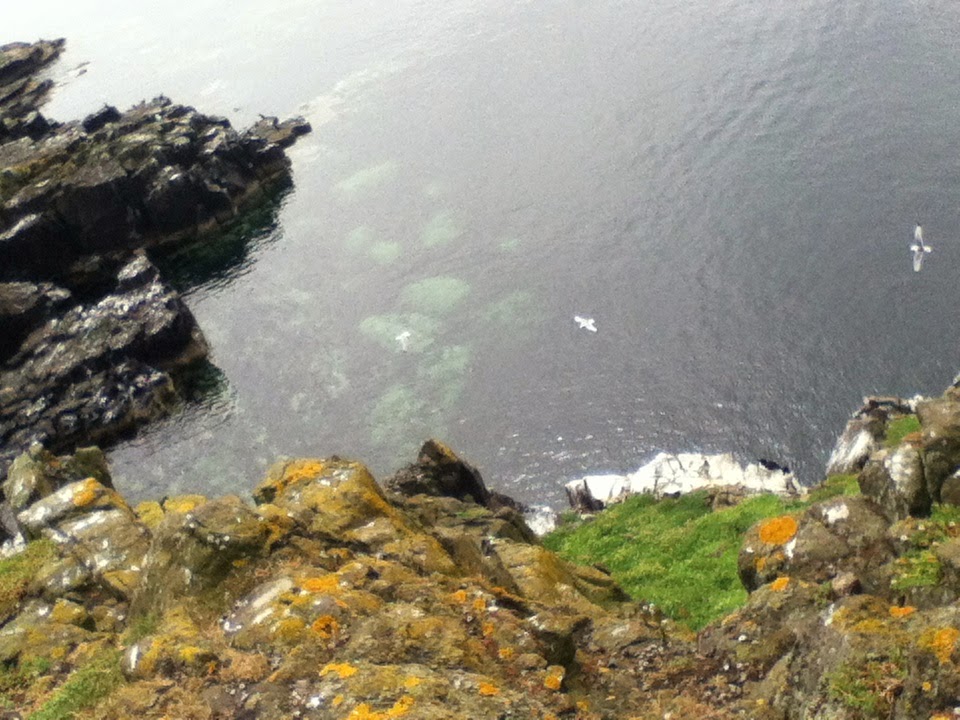I was thinking about when and why waving (particularly the happy, smiling, hey-you kind of waving) happens. all the possible contexts for waving won't fit in my head. I know the happy kind isn't the only kind. you could wave as a warning, as either hello or goodbye, or as a call for help, or a directional gesture.
but my thinking was mostly about happy, hey-you waving and strangers.
it seems a rare thing to wave happily and inconsequentially at strangers. a rare thing to wave and nothing more--no subsequent greeting or gathering or inquiry or discussion. only waving.
first, this kind of waving requires and responds to a certain amount of distance. to wave wordlessly without seeming creepily, stalkingly silent and strange needs an excuse of several meters. you must be far enough away to make shouting either ineffective or impolite, if not both.
movement seems necessary, also. to simply wave at strangers while otherwise motionless would need some other excuse, or perhaps even greater or loftier distances. at least one party involved in this exchange of waving should be on their way from somewhere to elsewhere.
are those the only two most basic requirements? or are there others? perhaps certain forms of transportation warrant random waving more than others. trains and boats come to mind more fittingly than skateboards or airplanes, definitely. perhaps the weather or the time of day might also make some difference. I'm not sure.
but whatever the perfect mix of circumstances is, sometimes there are moments for this waving-at-strangers: fleeting little isolated situations where there is no need for anything else. maybe no need to wave, either, really. but why not?
to wave with no reason other than the sake of human solidarity. it seems nice. maybe even an instinct...
it felt sort of like an instinct, at least, on our boat trip to the Isle of May a few weeks ago. it was our penultimate day in Scotland. we waved as we pulled away from the dock in Anstruther. we waved to passengers on a small speedboat, too. we waved to the National Nature Reserve volunteers when we left the island that afternoon. and we waved to a passing fishing boat on our way back.
everyone waved back.

I guess I don't know for certain that these strangers had no acquaintance on board the May Princess that day, but it didn't seem likely. the chances of anyone on a boatful of tourists actually knowing anyone outside of that boat in the middle of the gaping mouth of the Forth River can't be very much.
yet it seemed so nice to wave, in transit as we were that day, to the island and back.
that wave is both a verb and a noun reminds me of the event-ness of all objects, and of paradoxes. both noun waves and verb waves imply a back and forthness, or up and downness... an instability and yet a repeating, measurable frequency... movement, but usually in patterns. are there reasons for the patterns? is there meaning in this merry-go-round of back and forth and up and down? will we come, someday, to an explanation?
maybe no. but maybe we only need the waves themselves. maybe the fact that we can see the pattern at all is enough for reassuring ourselves of some worthwhile slivers of human solidarity underneath it.



No comments:
Post a Comment